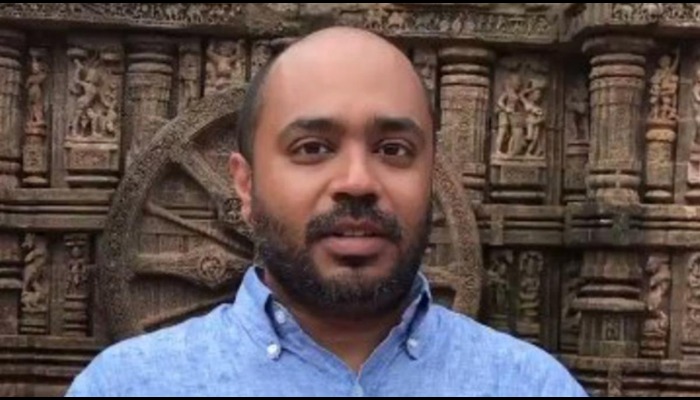Delhi High Court Orders Abhijit Iyer-Mitra to Delete Posts Targeting Women Journalists

Representative Image
Delhi High Court directs Abhijit Iyer-Mitra to remove abusive posts about Newslaundry journalists, warning possible legal action for using impermissible language.
The Delhi High Court issued a strong rebuke to political commentator Abhijit Iyer-Mitra on Wednesday, instructing him to remove within five hours a series of social media posts that allegedly contained abusive and defamatory remarks directed at nine female journalists from the Indian digital media outlet Newslaundry.
Justice Purushaindra Kumar Kaurav, presiding over the case, remarked that the language used in the posts was “not permissible in any civilised society” and indicated that the court would not consider Iyer-Mitra’s arguments unless the content was first taken down.
The case stems from a civil defamation suit filed by Newslaundry journalists, who claim that Iyer-Mitra’s posts on X (formerly Twitter) amounted to “defamatory, false, malicious and unsubstantiated allegations.” The plaintiffs are seeking an injunction, a written apology, and ₹2 crore (approximately US$240,000) in damages.
Court Warns of Criminal Proceedings
In court, Justice Kaurav warned that failure to comply could lead to more serious consequences, including the possible initiation of criminal proceedings. “We perhaps may direct for registration of a criminal case suo motu against the defendant and to take him into custody if eventually you fail to satisfy us,” the judge stated.
Counsel for the plaintiffs, Advocates Bani Dikshit and Farman Ali, argued that Iyer-Mitra had used derogatory language that constituted an attack not only on the individuals but also on their organisation and its supporters, who range from professionals such as doctors and engineers to teachers and scientists.
Defence Concedes Use of “Filthy” Language
Representing Iyer-Mitra, counsel Jai Anant Dehadrai acknowledged that the language used in the posts was inappropriate and “filthy,” but maintained that the tweets were directed at the organisation rather than specific individuals. Nevertheless, he agreed—without prejudice to his client’s broader arguments—to comply with the court’s directive to remove the posts.
“Yes, there is an element of abuse in the tweet but not even a single post is directly attributed to any of the plaintiffs individually. It was attributed to the organisation,” Dehadrai said, while also claiming that Newslaundry was not a legitimate news outlet, citing what he described as its “questionable sources of income.”
However, Justice Kaurav firmly rejected the defence, saying: “Even if not attributable to anyone individually, such language on a public platform is not acceptable. Do you understand the definition of brothel?”
The judge further stated that grievances about the media outlet’s operations could not justify the language used. “You may have multiple grievances and fair comments against the plaintiff, but the choice of words is impermissible in a civilised society,” he said.
Posts Called “Vicious and Misogynistic”
In their plea, the plaintiffs accused Iyer-Mitra of launching a “scathing and belligerent” social media campaign against them, describing the remarks as “vicious,” “misogynistic,” and motivated by an intent to provoke and defame.
“The defendant cannot be permitted to disseminate falsities, only with the oblique motive to gain cheap publicity and eyeballs,” the suit claimed, further noting that none of the nine plaintiffs had any personal or professional relationship with Iyer-Mitra that could have warranted such comments.
The court has posted the matter for further hearing on 26 May.
Context:
The case raises significant questions around the limits of free speech on digital platforms, especially in relation to gender-based online harassment. While India guarantees freedom of expression under Article 19 of its Constitution, this right is subject to reasonable restrictions, including defamation and public decency.
This episode also highlights growing judicial concern over the use of abusive language on social media, particularly when directed at journalists or other public-facing professionals. In recent years, Indian courts have increasingly intervened in cases involving online harassment, seeking to balance free expression with the right to dignity and reputation.
The Delhi High Court’s comments may serve as a precedent in shaping how civil courts respond to defamatory content in the digital age, particularly when it intersects with broader issues of gender and press freedom.

IndiGo Q4 Profit Rises 62% to ₹3,067 Crore Amid Strong Passenger Demand
IndiGo reports 62% year-on-year profit growth in Q4 FY25 to ₹3,067 crore, driven by record passenger traffic and domestic demand; dividend of ₹10 per share proposed.
|2025-05-22

EV Adoption in India Accelerates as Hybrids Complement Growth: HSBC
India’s electric vehicle market is expanding, with hybrids and EVs growing together, supported by new models and government incentives, HSBC reports.
|2025-05-22

SEBI Warns Against Social Media Stock Market Scams Targeting Indian Investors
SEBI urges investors to avoid unverified WhatsApp groups and trading advice on social media amid rising online scams in India's stock markets.
|2025-05-22

Mumbai Indians Secure IPL 2025 Playoff Spot with 59-Run Victory Over Delhi Capitals
Mumbai Indians booked the final IPL 2025 playoff berth after a 59-run win over Delhi Capitals, who became the first team to miss playoffs after four opening wins.
|2025-05-22

Aditi Rao Hydari Wears Rahul Mishra Gown and Chopard Diamonds at Cannes 2025
Indian actress Aditi Rao Hydari dazzles at Cannes 2025 in a Rahul Mishra gown and Chopard diamond necklace during the premiere of Fuori at the film festival.
|2025-05-22




